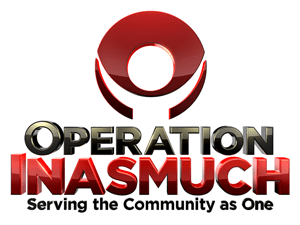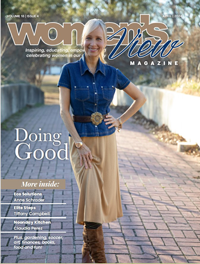
Last week’s news that Barbara Marshall had been escorted from Jubilee House by Cumberland County sheriff’s deputies left me feeling empty and saddened. Marshall founded the non-profit in 2007 to provide services to women military veterans, and she and her charity gained national attention four years later when hundreds of volunteers rebuilt a modest home into a spectacular one for the television program “Extreme Makeover: Home Edition.” Even First Lady Michelle Obama paid a visit and sang the nonprofit’s praises.
It has been a long, slow downhill slide ever since, one that I will not detail here. It has been clear almost from the beginning, though, that while Marshall had all good intentions, she simply was not equipped either financially or organizationally to carry them out. Her cause is noble, and while women veterans in our community and elsewhere do need a myriad of services, those needs are bigger and more pressing than Marshall’s charity, and probably many others, can address. Similarly, I find it heartbreaking to see veterans and their loved ones pleading on television for donations to build them homes, buy them prosthetic limbs, and provide for the basic needs of their families.
We, the American taxpayers and direct beneficiaries of the sacrifices made by our service men and women and their families, should be footing those bills with pride, gratitude and humility. Our veterans should be respected, cared for and honored. They are not charity cases.
President Bush the First advocated for what he called “faith-based initiatives” and blessed them as “a thousand points of light.” As best I understand his concept, it means that religious groups and organizations of all stripes, colors and theologies should step forward and do all sorts of good works for our fellow Americans so that government does not have to. It is a terrific notion, and in truth, it delineates what thousands of religious organizations have been doing for generations anyway, helping “the least of these” by quiet handouts to individuals and families via large scale and sustainable charitable programs.
Two crucial issues affect faith-based and other private charitable initiatives. The first is responsibility. The Barbara Marshalls and other volunteers in communities throughout our nation do wonderful and often thankless work, and people are often better off for their services. But at the end of the day what many of them achieve are millions of needed and welcomed acts of kindness, not ongoing programs. Many of the recipients of such kindnesses still need various and regular social and healthcare services that require the efforts of paid staff to deliver and shoulder responsibility. Only a precious few very large faith-based and charitable organizations can even dream of providing such services. That is why when human services are required on a comprehensive and long-term level, they have traditionally been delivered by government, sometimes in partnership with other entities, and staffed by people whose primary interests and livelihoods lie in executing such service programs.
The second issue involves training and professional skills. No volunteers, however well-intentioned and dedicated, can provide for the social and healthcare needs of people who have long-standing problems with poverty, physical and mental health, addictions and other conditions and life situations which render them “among the least of these.” Here again, a compassionate society that decides to address such human problems in a collective manner has few options but to do so through programs paid for, delivered by, and responsible to the government at some level. We Americans began the decision to do that around the turn of the 20th century when the concept of social responsibility took root. Despite some failures and some excesses, we have continued reaching out to our fellow citizens in such ways through efforts underwritten by people all along our political spectrum.
President George H. W. Bush sang a lovely and morally right tune in encouraging volunteer efforts on behalf of our nation’s needs, and many can be and are addressed successfully by volunteer efforts. Think how many historic buildings and places have been preserved, how many museums conceived and brought to reality, how many important issues brought into the public spotlight by dedicated and focused volunteers. Think how many homes are repaired, how many bodies fed and warmed, how many hearts touched by the faith-based charity Operation Inasmuch in our own community. Think, too, how much each of us can accomplish if we bestir ourselves and do the right thing for the volunteer causes that interest us in our own community and beyond.
But know as well that we as a nation long ago undertook a collective responsibility to and for each other, and that responsibility has become woven into the fabric of our social contract.
Not even President Bush has suggested we unravel it.

 How to resolve AdBlock issue?
How to resolve AdBlock issue? 









